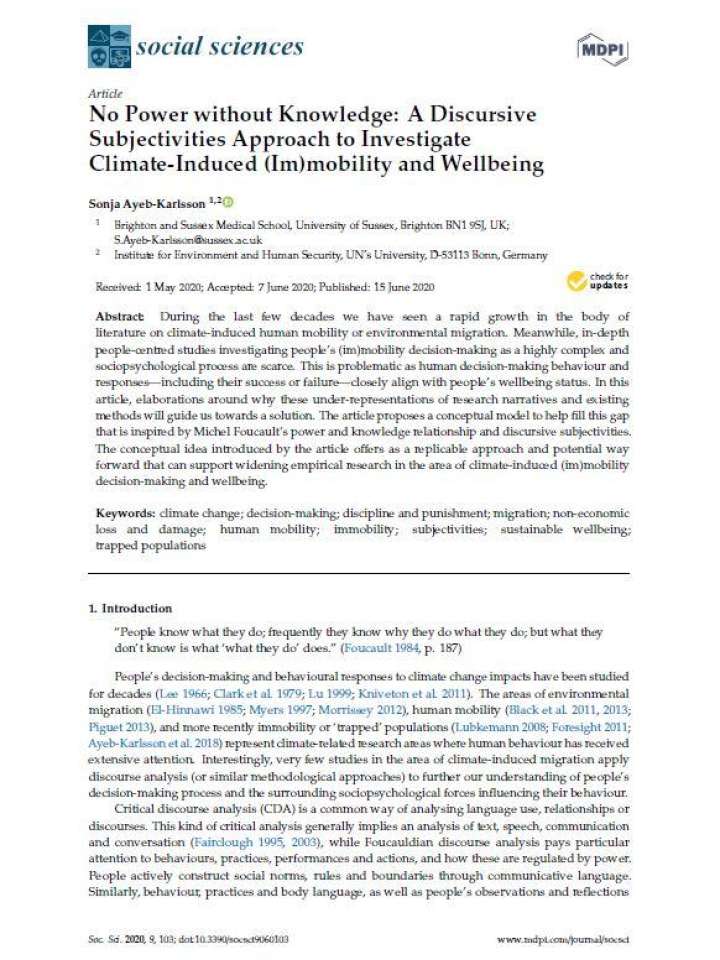No power without knowledge: A discursive subjectivities approach to investigate climate-induced (im)mobility and wellbeing
During the last few decades, rapid growth in the body of literature on climate-induced human mobility or environmental migration has been observed. Meanwhile, in-depth people-centred studies investigating people’s (im)mobility decision-making as a highly complex and sociopsychological process are scarce. This is problematic as human decision-making behaviour and responses -including their success or failure- closely align with people’s wellbeing status.
The conceptual framework proposed in this article serves as a reminder of the flexible and transformative shape of language, knowledge and social structures. The power of language and discursive realities should not be overlooked. Particular caution must be taken within climate change investigations before determining that someone is (im)mobile, (mal)adaptive or (non)resilient. The author concludes that a more comprehensive and subjective understanding of how to best apply emerging key climate policy concepts such as human mobility, trapped populations and non-economic loss and damage, should be explored, so that they truly protect the most vulnerable populations.
Explore further
